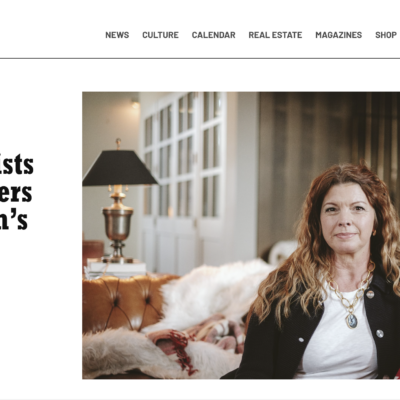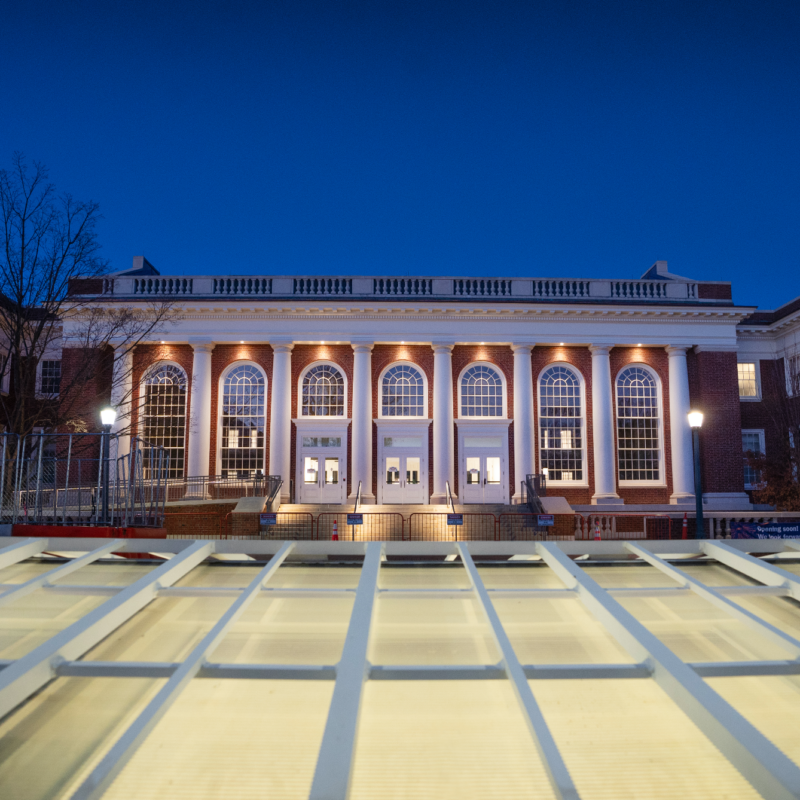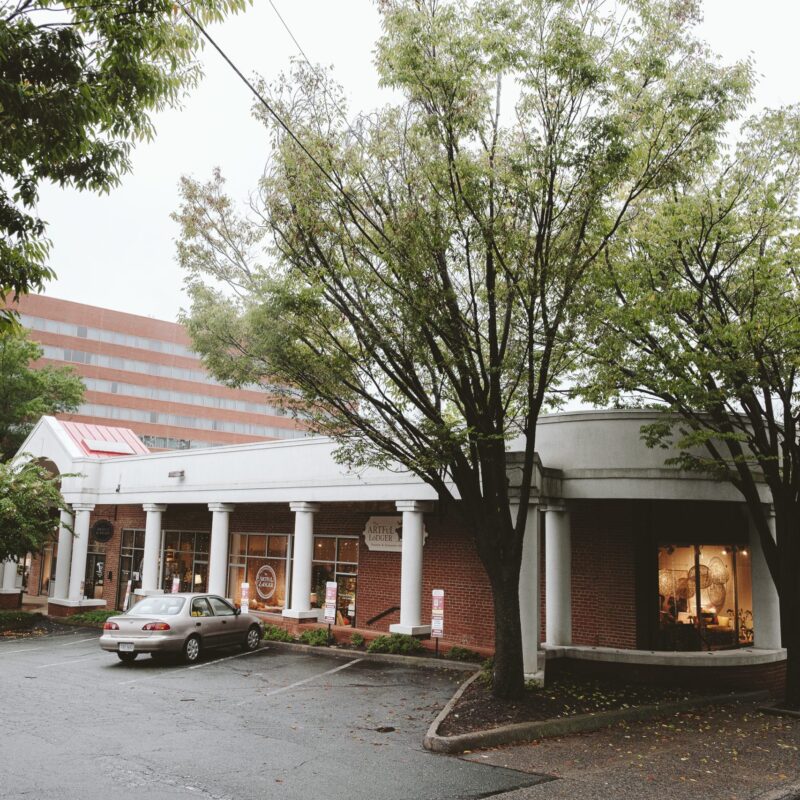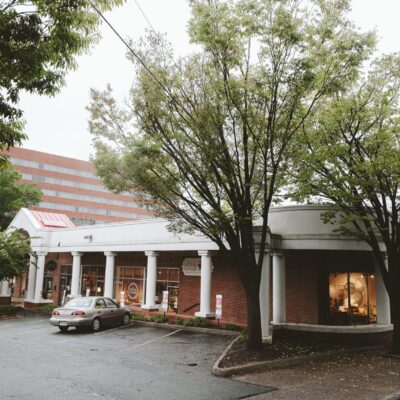(1) Joel Salatin — Proprietor, Polyface Farm
Having the term “progressive” applied to himself and his Staunton farm, Polyface, would likely make salt-of-the-earth Joel Salatin chuckle. But ever since “organic” entered the mainstream lexicon of even Wal-Mart shoppers and requests for “grass-fed beef” have become commonplace for customers beyond just fellow farmers and the Amish, the term seems appropriate.
|
JUMP TO: • Up & Comers in this category and the other four! |
Salatin, a thorn in the side of the USDA and the industrial food complex for half a century now, has, in recent years, become a national celebrity of the local food movement—or maybe it’s a local celebrity of the national local food movement. Thanks to books like Michael Pollan’s The Omnivore’s Dilemma, which featured Polyface’s once typical but now rare form of organic, pasture-based rotational farming, and Salatin’s own diatribe Everything I Want to Do Is Illegal, Salatin, who refers to himself as a “Christian, libertarian, environmentalist capitalist,” has become one of the best-known advocates of direct-from-farm sales, alternative farming and food system change.
|
Joel Salatin: The man at the heart of the “locavore” movement may be one of the most recognizable figures in farming, but his work keeps him close to home, where Polyface Farm supplies everyone from individual consumers to Chipotle to UVA Dining Services. |
Polyface is now inundated with orders for its pasture-raised meats, poultry and dairy products from local markets and consumers, 20 Charlottesville restaurants and UVA Dining Services. Salatin now spends much of his time giving speeches for local food advocacy organizations, such as the Piedmont Environmental Council. When he’s actually at the farm, he’s often performing as self-described “infotainment” for local food pilgrims from as far as California. At a recent lecture called “Building a Local Food System That Works,” at the Montessori Community School on Pantops, Salatin told a story of one curious out-of-towner who visited Polyface and remarked: “For a farmer, you’re so articulate!” We’ve recently learned that even Oprah’s O Magazine has contacted Polyface for a story.
But while he has national appeal and fame, Salatin is a locavore to the core. Call up Polyface and order half a grass-fed beef share. He’ll likely be the one to answer the phone and speak very well for a farmer.
(2) Terry Sieg — President, J.W. Sieg
Terry Sieg was a starting running back for the UVA football team when his father, Wally, started beverage wholesaler J. W. Sieg & Co. more than 40 years ago. Talk about a big man on campus! We kid. We have no evidence to suggest that Terry’s familial connections to the local beer distributor contributed to his collegiate popularity, but what we do know is that Terry took over as president of his father’s company in 1976 and has built the business into the largest beer wholesaler in town.
And that does make him a very big man on the greater Charlottesville campus. As the exclusive distributor of the Anheuser-Busch line of beer products to the central Virginia area, it’s safe to assume that no local restaurant or retailer can avoid doing business with Sieg. In fact, it’s probably safe to assume they’re doing even more business with Sieg these days, as Budweiser and Bud Light—the world’s largest-selling beers—have become the budget beverages of choice for even more consumers in this bleak economy. As the exclusive distributor of imports such as Stella Artois and select craft beers such as Starr Hill, Sieg has much of the high-end market cornered too, and after a brief stint in the 1980s, the company has relaunched a wine import and distribution business under the direction of J.W. Sieg Vice President Smith Williams and with help from wine consultant Derek Robinson, formerly of major premium wine importer The Country Vintner.
(3) David King — "Head Problem Solver," King Family Vineyards
|
David King: While he sets a high bar for taste at King Family Vineyards, he also wields enormous political influence over the direction of Virginia wine, from marketing and research to distribution. |
Transplanted Texan David King has become a major player in the local wine scene since first planting grapes on his family’s Crozet farm in 1998. King Family Vineyards is one of the better and more successful wineries in the area, notable among other things for its popular summer polo matches and for helping make its first winemaker, Michael Shaps, a household name.
More importantly, however, King has become a major political force in Virginia wine. When it comes to the various groups who make things happen wine-wise, he’s omnipresent: chair of the State Wine Commodity Board (which controls state funding for things like wine marketing and Virginia Tech enology research), legislative committee chair of the Virginia Wineries Association, and chairman of the Board of the Virginia Wine Distribution Company. The latter was a solution to the battle over self-distribution, a compromise he helped steer and which was launched at his winery.
As one industry insider put it, King “is not afraid to make tough decisions to achieve what he thinks is best. He’s also not afraid to be wrong, which makes him fearless.”
Along the Virginia wine trail, it seems David King lives up to his name.
(4) Denise Yetzer — Co-founder, Cavalier Produce
|
The go-to gal for bulk orders of local goods, she’s made herself the indispensable produce source for a large group of local businesses. |
Figs generally don’t grow on trees around here, nor do avocados, so if you need them and don’t want to deal with a national industrial food monster such as Sysco, U.S. Food or cheap bulk retailer Costco, then Cavalier Produce is where you go to do business with the local middleman. As one Charlottesville chef told us: “I won’t work with Sysco on principal. I work with Denise at Cavalier Produce.”
Denise Yetzer and co-founder Spencer Morris started Cavalier Produce when they purchased the Charlottesville outpost of regional food wholesaler Four Seasons Produce almost a decade ago. Back then, Standard Produce was the only local wholesaler. Now Cavalier Produce has dozens and dozens of restaurants and local institutions on its client list and also owns and operates the C’Ville Market retail shop, which has been offering locally grown products even before it was all the rage—currently 32 local vendors are represented there.
Not all of the products Cav Produce sells are locally grown, but the company itself is, and that counts for a lot with many area restaurants and chefs who rave about Yetzer’s ability to get them exactly what they need, when they need it and with the kind of neighborly customer service that breeds intense loyalty. Word on the street is Cav Produce is working hard to source even more product locally, and that could mean big business for local farms looking to connect with restaurant and institutional customers.
(5) Tomas Rahal — Head Chef, Mas Tapas
It started with one simple, yet innovative, idea: to offer a small-plate menu filled with simple and rustic Spanish-inspired dishes created from mostly local products. While Mas chef and part-owner Tomas Rahal was confident in his initiative, no one could have predicted the impact his tapas restaurant would have on Charlottesville diners.
After the idea came the rest of the ingredients: a prime Belmont location (made prime, mostly, because of the restaurant’s own popularity); years of experience honed at successful Charlottesville eateries such as Rapture, Mono Loco and Continental Divide; and later, financial backing from local music and restaurant heavyweight Coran Capshaw. It wasn’t the first tapas restaurant, but it’s the one that has set the standard.
Six years after opening, Mas is still affecting what we eat and how we eat it. It remains one of the top restaurants in Charlottesville —proven by a glowing write-up in The Washington Post last May and, more locally, by its top ranking among readers in C-VILLE’s annual Best Of poll.
In addition, many credit Rahal with helping to revitalize Belmont, a neighborhood that, until Mas moved in, was a cultural dead zone. Rahal’s creation prompted other local business owners to choose Belmont for their setup. Now the neighborhood is a major player in the Charlottesville experience, with an art gallery, coffee shops and music venues.
With so much going for it, it’s easy to tell your waitress to keep the small plates coming. But that’s not how Rahal wants it.
“I used to yell at my staff for letting people order too much,” he told C-VILLE last summer. “We don’t want you to try everything the first time you come in.” That’s O.K.; we don’t mind coming back.








